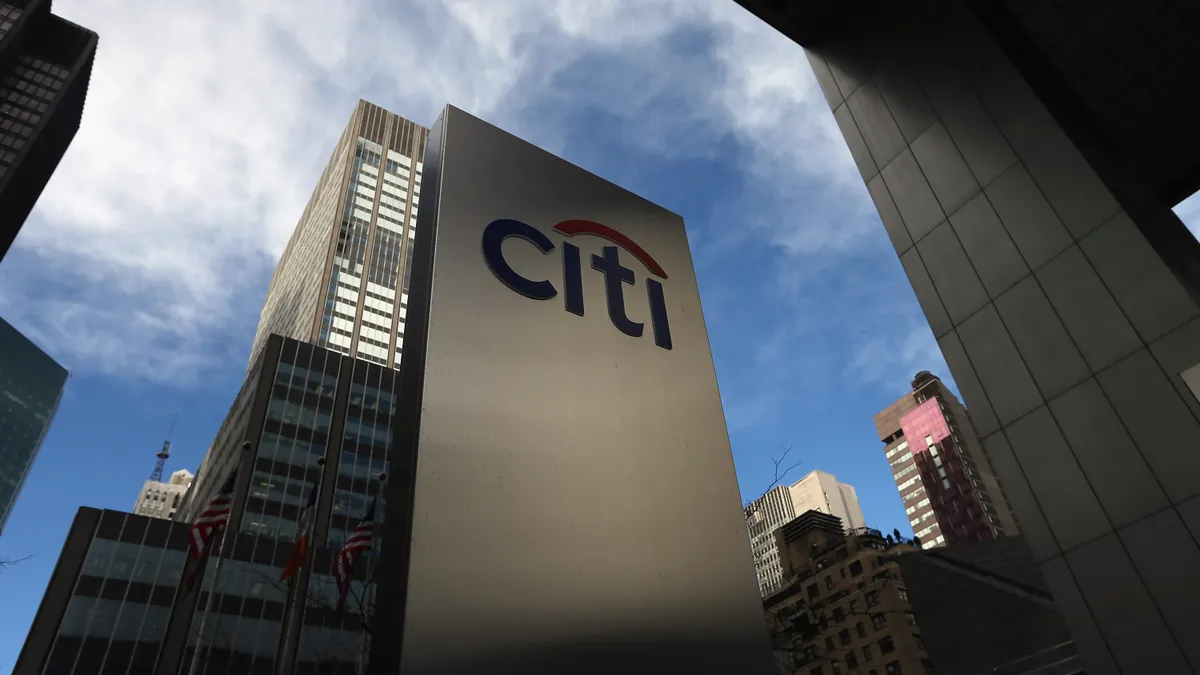Dive Brief:
- Citi has agreed to sell its onshore consumer wealth portfolio in China including clients, assets under management and deposits to HSBC Bank China, the lender announced Monday.
- The deal, expected to close in the first half of 2024, covers total deposits and investment AUMs totaling roughly $3.6 billion. Financial terms of the transaction were not disclosed.
- The deal will advance Citi’s wind-down of its China consumer banking business, announced in December. Citi unveiled its plan to exit China consumer banking in April 2021 as part of its global strategy shift. Rumors of the Citi-to-HSBC transfer had surfaced last month.
Dive Insight:
The deal could mean up to 400 employees move to HSBC. The British bank plans to extend employment offers to Citi staff supporting the acquired wealth operations, according to Monday’s statement.
“We are taking important steps forward in exiting our consumer banking business in China and continue to make progress in our divestitures as part of our strategy to simplify Citi. This is an excellent outcome for our local consumer wealth colleagues and clients in China,” Titi Cole, Citi's head of legacy franchises, said Monday.
Citi still plans to lend to institutions in China, the bank said, and will continue to cater to ultra-high net worth Chinese clients through its international personal bank and private bank, based in regional wealth hubs Hong Kong and Singapore.
The move fits with HSBC’s efforts to renew its focus on Asia, a key revenue generator for the firm. The bank, two years ago, pledged to bolster its Asian wealth business over the next five years to the tune of more than $3.5 billion, according to The Wall Street Journal.
HSBC CEO Noel Quinn told the Financial Times in February that the bank was looking for “potential bolt-ons” to enhance its wealth business in the continent.
“Mainland China is central to our ambition to be the leading wealth manager in Asia,” Nuno Matos, CEO of wealth and personal banking at HSBC, told Bloomberg on Monday.
To expand its reach among China’s wealthy, HSBC has undertaken “organic and inorganic initiatives” concentrating on the affluent and emerging affluent segments. Since Hong Kong is the largest market for HSBC, the lender also recently acquired full ownership of its Chinese life insurance arm, HSBC Life China, and launched other private-banking offerings across six mainland cities, Bloomberg reported.
HSBC recorded $27 billion in net new invested asset inflows in Asia for the first half of 2023 — up 21% year-over-year, according to Reuters.














